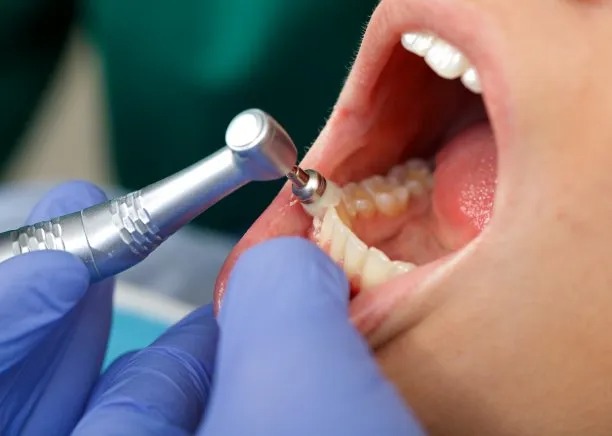Summary: Dental implants are a revolutionary solution for tooth loss, offering not only aesthetic improvements but also functional benefits to those seeking enhanced oral health. This guide provides an extensive overview of dental implant treatment, covering the types of dental implants available, the treatment process, the benefits for long-term oral health, and essential aftercare practices. With a focus on restoring confidence and achieving lasting smiles, the article serves as both an educational resource and a reassurance for prospective patients considering this transformative dental procedure.
1. Understanding Different Types of Dental Implants

When considering dental implants, its critical to understand the various types available. The most common types include endosteal implants, which are placed directly into the jawbone, and subperiosteal implants, which are situated under the gum but above the alveolar bone. Each type is tailored to meet individual needs and anatomical considerations, making it essential for patients to discuss their options with a qualified dental professional.
Endosteal implants are typically made from titanium and can support one or multiple teeth, depending on the patients specific case. These implants are favored for their durability and success rates. Conversely, subperiosteal implants are often recommended for patients with insufficient bone height or density, as they do not require extensive surgical intervention to place.
Moreover, advancements in dental technology have also led to the development of mini implants, which offer a less invasive option for individuals who may not qualify for traditional implants. Each type of implant has its benefits, risks, and implications for treatment and longevity, making it essential for prospective candidates to weigh their options carefully.
2. The Dental Implant Treatment Process
The dental implant treatment process generally unfolds in several key stages, ensuring that patients receive comprehensive care and results tailored to their needs. Initially, an extensive evaluation, including imaging and assessments, is conducted to determine if the patient is an ideal candidate. If so, a treatment plan is developed outlining the procedure, timelines, and costs involved.
Once the preliminary consultations are complete, the surgical procedure begins with the placement of the implant. During this process, the implant is carefully positioned in the jawbone, following which a healing period is necessary to allow the implant to integrate naturally with the bone. This osseointegration process is crucial for the long-term success of the implant.
After the healing phase, which can take several months, patients return to the dental office to have a crown placed on the implant. This final stage enhances functionality and aesthetics, leading to a thoroughly personalized solution that mimics natural teeth in both appearance and function. Regular follow-ups are essential to monitor healing and implant success.
3. Benefits of Dental Implants for Oral Health
Dental implants offer myriad benefits for both oral health and overall well-being. One of the most significant advantages is the restoration of proper chewing and speech abilities, which can often be compromised by traditional dentures. Patients often find that implants provide a secure fit, allowing them to enjoy a varied diet without the fear of slippage.
Another critical benefit extends to preserving jawbone health. Tooth loss can lead to deterioration of the jawbone, which affects facial aesthetics and health. Dental implants stimulate the jawbone just like natural teeth, preventing bone loss and maintaining facial structure. This is an important consideration for individuals looking to preserve their long-term oral health.
Additionally, dental implants promote dental hygiene. Unlike bridges, which can require altering surrounding teeth, implants stand alone and do not necessitate additional interventions. This allows patients to maintain better oral hygiene practices, as cleaning around implants is similar to caring for natural teeth, resulting in a lower risk of gum disease and related complications.
4. Essential Aftercare Practices Post-Implant Surgery
Aftercare following dental implant surgery is crucial for ensuring the longevity and health of the implant. Patients are advised to follow their dentists instructions carefully, which may include dietary modifications, pain management strategies, and specific oral hygiene practices. Immediately after surgery, its best to avoid hard, crunchy foods that could disrupt the healing process.
Regular dental check-ups should follow the initial healing and crown placement phases. These visits allow the dentist to monitor the patients progress and address any potential issues early on. Maintaining open communication with dental professionals is essential, as it enables a proactive approach to oral health.
Finally, incorporating good oral hygiene practices, such as brushing and flossing daily and using antiseptic mouthwash, goes a long way in protecting dental implants. Patients are also encouraged to avoid smoking, as it can hinder healing and affect overall oral health. By adhering to these aftercare practices, individuals can ensure their dental implants remain healthy and functional for years to come.
Summary:
In summary, dental implants emerge as a leading solution for tooth loss, blending aesthetic appeal with substantial functional benefits. The comprehensive guide emphasizes the importance of understanding implant types, the treatment process, and their long-term benefits for oral health. Equally critical is the focus on aftercare, ensuring that patients achieve and maintain the confidence that comes with a beautiful smile.
This article is compiled by Vickong Dental and the content is for reference only.
Vickong Dental
Vickong Dental is a large medical group established in Hong Kong in 2008 by professors from well-known medical universities in Guangdong and Hong Kong, as well as medical doctors from key national '985' universities (including Master's supervisors and senior professors). The chain of branches brings together expert dentists with PhDs and Master's degrees from Hong Kong and Mainland China, committed to providing high-quality dental treatment.
"Vickong Dental Practices the University Motto of 'Healing and Serving Society,' with a Stable Operation for Sixteen Years. It Has Been honored with Hong Kong Enterprise Leaders's Choice,' and is a Global Trusted Implant Center for the Nobel Implant System. Recommended by Hong Kong Metro Broadcast and Guangdong Television, it Serves Customers from Over Thirty Countries and Regions, Gaining the Trust and Favor of Citizens from the Guangdong-Hong Kong-Macau Greater Bay Area and Surrounding Cities.

Thousands of customers' unanimous praise
The most recognized and highly recommended dental service by customers in the Guangdong-Hong Kong-Macau Greater Bay Area
We Ensure You Receive Detailed Care and Attention Here
Hong Kong standards, Shenzhen prices, Your Trusted English-speaking dentists

Vickong Dental Medical-Grade Instrument Disinfection Process
Vickong Dental Medical-Grade Instrument Disinfection Process

Vickong Dental Chain: A Warm and Comfortable Environment for Treatment






Appointment Hours

Q&A
Why choose Vickong Dental?
Vickong Dental practices the university motto 「Medicine to Benefit Society」, with each branch bringing together highly qualified dentists with doctoral and master’s degrees from Hong Kong and the Mainland, and has maintained seventeen years of steady operation。Recipient of 「2024 Hong Kong Enterprise Leaders Brand」, 「2025 Hong Kong Enterprise Leaders Brand」, a Nobel Biocare Global Trusted Implant Center, and a brand recommended by Metro Radio Hong Kong and Guangdong TV。
To date, we have served customers from more than thirty countries and regions,earning exceptionally high word-of-mouth recognition and trusted recommendations from residents across the Guangdong-Hong Kong-Macao Greater Bay Area and surrounding cities
We have eight major branches in Zhuhai、Shenzhen,and a consultation and service assurance center in Hong Kong,so you can book a free consultation at any time for any questions,which is very reassuring.
If I do not accept the quotation after the CT scan, will I be charged??
No! As long as the actual treatment has not started, you will not be charged any fees.
Will there be any additional charges during the treatment process?
No, there won’t be any additional charges. Before treatment begins, we will clearly explain the treatment plan and its corresponding fees. Only after the patient agrees and signs the consent form will we proceed with the dental service.
Can I pay in Hong Kong dollars?
Yes. Vickong Dental accepts payment in Hong Kong dollars. The amount will be converted based on the exchange rate of the day, and the applicable rate will be clearly communicated to you in advance.
Can I reschedule my appointment at any time?
Yes. Please contact us via **WeChat** or **WhatsApp** as early as possible, providing your original appointment time and details, along with your preferred new date and time slot for rescheduling.













